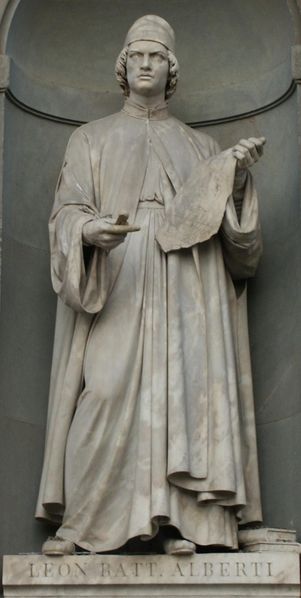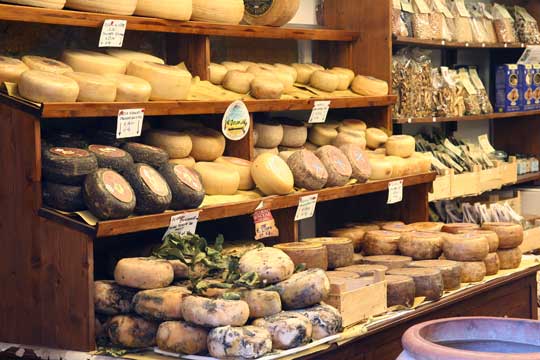Alberti, Leon Battista (1404-1472), born in Genoa. One of the first Renaissance humanists, Alberti excelled as an architect, sculptor, painter, art theorist and writer. He wrote on a wide variety of subjects, including painting (Della Pittura), architecture (De re aedificatoria), sculpture (De statua) and even family ethics. In his I Libri della famiglia, four books written around 1434 in a Tuscan dialect, Alberti discussed education, marriage, wise household management, family prosperity, and friendship in the work place. Book Three reveals beautiful excerpts on meals such as: “…but let there be a proper table for good citizens, so that no well-disposed member of your family would want to eat elsewhere in hopes of assuaging hunger better than at home. Let your table be a good domestic spread, with no lack of wine and plenty of bread. Let the wine be pure and the bread, too, good enough, and let there be fine and sufficient condiments for the bread.” And let’s not forget the cheese!
“On Painting” by Gilles Deleuze
A blank canvas is a space brimming with possibilities—“a painting to be made,” as Cézanne wrote. It is what Deleuze calls the “catastrophe”—nothing can be seen, yet everything is there as if one were trapped in the eye of a storm. And from this catastrophe, one must find a way out: the very first stroke, a scribble, clichés to be destroyed, “forms that fade away”; erasing, starting over; “the hand, freed from the eye, runs wild,” and then—there! “The color rises,” and so on until the final work emerges.




Saluti tanti tanti
Enrico